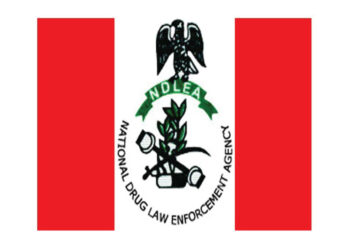Farmers have urged Nigerians to brace up for more price hikes of food produce, predicting that the food crisis may continue till August.
This is as the farmers blamed subsidy removal which increased the cost of transporting farm produce, and insecurity, which has continued to hinder farming as some of the reasons for the food crisis.
Speaking with Punch, the National President, All Farmers Association of Nigeria, Kabir Ibrahim, said tougher days were ahead for Nigerians concerning the food crisis.
He, however, cautioned the Federal Government against the knee-jack reaction of opening the borders and flooding the market with imported foods, warning that such a decision could erode the little gains recorded in the agricultural sector.
Ibrahim also explained that the hikes in prices of farm produce such as tomato, pepper, and yam may not be unconnected with the seasonal variations, noting that the prices of some food items usually went up around this period.
He said, “Vegetables, characteristically, will be sold for higher prices at this time, because this is not the season. For those who do open production, the rains will not allow those to germinate very well. So, there is always a scarcity around this time and September. After that, the price will start coming down, because some people who do open production can also bring some.
“So November through January, February, and even March, you’ll find very good prices, but don’t forget the challenges of the exchange rate of the naira. That is also happening. Don’t also discount the cost of transporting the produce. All these farmers will have to factor in selling to the middlemen, and the middlemen also buy to make profits. Those are some of the reasons.”
He also noted that while insecurity remained a fundamental issue preventing farmers from ensuring food security, other issues including the high exchange rate must be addressed to curb the ongoing crisis.
He said, “Insecurity is a factor in food security in Nigeria. Nobody can discountenance it, but there was more insecurity in 2022, for instance. That was even before the floods challenge. These challenges were not as much in the early part of 2023 compared to the time this administration came on board. Some of these things are also dependent on the times. The exchange rate is of course important and remains a factor as well. The removal of subsidy on all petroleum products and the increased costs associated with that in transportation and distribution of farm produce is also a major issue.”
He stressed that a major factor in the ongoing crisis was the cost of food and not scarcity. “The question is affordability. It is available but not affordable. Therefore, with the high cost, there is no food security. Food security means you should be able to afford food within reasonable limits,” he said.
Ibrahim, however, reiterated the need for the government to avoid trying to solve the ongoing crisis by opening the border to mass food importation, noting that it could destroy the gains already recorded in the agricultural sector.
Also speaking, the National Secretary of the All Farmers Association of Nigeria, Dr Yunusa Halidu, stated that low productivity was the cause of the hike in prices of farm produce, noting that the Federal Government should do more to bring down the high cost of farming inputs.
“When we talk of inputs, we are talking about tractors and others. They are very expensive, and other inputs such as fertilisers. From last year to now, prices have hovered between N35,000, N45,000 and N50,000, and farmers cannot afford them. Three to four years ago, tractors cost about N10m to N15m, but today, they cost about N35m to N40m in the same country. Who can afford to buy it? Government can’t buy tractors for famers, and farmers can’t afford to buy tractors. They have to go back to the way of doing it which is our usual culture. That is affecting production.”
Also blaming insecurity for the crisis, he said, “Today, insecurity is wreaking havoc, with farmers being kidnapped. Now, the government can’t fight insecurity.”
He urged the government to work with farmers to end the food crisis.
“We need government to come in and discuss with us. The government should sit down with the farmer’s group. We are the umbrella body of all the commodity associations in Nigeria, and our structure is from national down to other levels. The government cannot regulate what it does not contribute to. The government cannot tell me to go and sell my yam or milk in the market at a certain price. What was their contribution to it? They did npt contribute a dime. Government should work hand in hand with farmers.”
‘Nigeria needs specialised agric institutions’, he said.



















